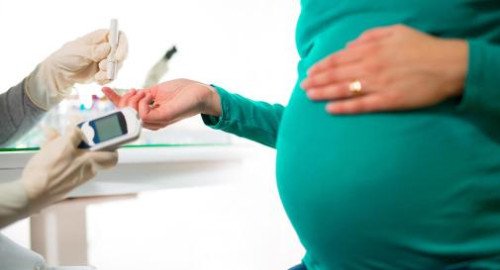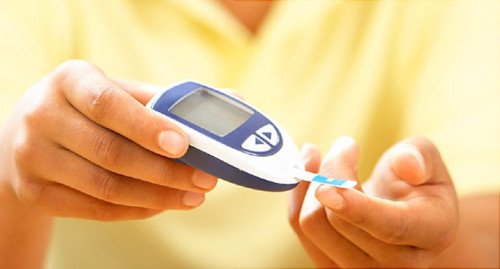

Diabetology specialist examination
Diabetology deals with disorders of blood sugar control, as well as the prevention, treatment and complications of diabetes. A diabetologist assesses the risk factors of diabetes and helps the patient avoid possible complications.
In Hungary, more than 1.1 million adults and more than 5,000 children live with diabetes, according to 2019 data from the Hungarian Central Statistical Office. Therefore, we must pay special attention to timely diabetes screening.
Diabetology deals with disorders of sugar metabolism, as well as the prevention, treatment and complications of diabetes. A diabetologist assesses the risk factors of diabetes and helps the patient avoid possible complications. The origin of everything is the diabetology specialist examination, about which it is worth knowing the following.
According to experts, the most important thing is to avoid risk factors, so the first thousand days from conception are also of paramount importance, since healthy nutrition during pregnancy and early childhood reduces the risk of developing diabetes. It is true that many people associate the development of civilization diseases such as diabetes with heredity, but while in the case of type 1 diabetes we are indeed talking about a hereditary predisposition, the development of type 2 can be traced back primarily to lifestyle. Prevention is of great importance in this case, as well as in many other diseases. Nutrition, lifestyle and regular exercise contribute greatly to the avoidance and prevention of diabetes.
The treatment of established diabetes is a team effort, requiring cooperation between the patient and the diabetologist, as well as other actors who periodically participate in the care. The support of relatives and family caregivers is also an important factor.
What should we bring with us to the examination?
- previous findings
- name and dose of currently taken medications (including the names of antidiabetic medications previously taken)
- drug sensitivity list (if there is any drug sensitivity)
- blood glucose meter (if you have one)
- blood glucose diary (if you keep one)
- questions you have written down in advance that you would like answered.
Length and frequency of the examination
The patient-doctor meeting is one hour in all cases, so that there is enough time for everything. The frequency of the consultation is determined by the patient's condition, the method of treatment and the nature of the current problems. In the case of a patient with well-controlled blood sugar levels, it is reasonable to appear at the diabetology clinic every 3-6 months, otherwise it may be necessary more often, even every two weeks or months.
Anamnesis
The specialist will ask the patient about the following circumstances and information, as well as their medical history.
Has diabetes been confirmed or is there a suspicion?
How long have you had diabetes and what is the basis for your suspicion?
What other previous illnesses or surgeries have you had?
What current comorbidities do you have?
Family history of diabetes and cardiovascular diseases.
List of medications, notification of known drug allergies.
Questions about smoking and alcohol consumption.
Questions about the patient's physical activity (sports, exercise), eating habits and preferences.
Questions about the nature of their work (sedentary or physical work, stress effects, possibly work in multiple shifts).
Occasionally, questions about having children or contraception, if justified by the patient's age, complications and reason for seeking care.
Questions about previous care, its form and frequency, and clarification of the reasons in case of failure, so that future care can be successful.
Further parts of the examination
Following the anamnesis, the further part of the meeting will be structured according to its content:
physical examination discussion of dietary principles
treatment principles and methods
education for the sake of tailor-made treatment
outlining the expected complications and the possibility of prevention
discussion of comorbidities
prescribing the recommended assessment tests
specific education on blood sugar measurement or, if applicable, insulin administration
setting individual, realistic goals
scheduling the time of the next visit.
Thorough, personalized information
Based on the patient's history, condition and currently available data, we summarize the medical opinion on the patient's condition. We inform them about the need for any medication, diet and lifestyle changes, and discuss the options and their willingness.
We discuss the existing complications, their expected progression, the possibility of slowing down, the parameters to be monitored, their significance and the frequency of their control.
We agree on the necessary frequency of doctor-patient meetings in the interest of and depending on the individually set goals to be achieved (HgA1C, blood sugar range, body weight, blood pressure and laboratory parameters to be improved).
We inform the patient about the extent of the drug support and its criteria, preventing any possible later disputes or dissatisfaction.
Further actions
Following the diabetology specialist examination, the patient applies the agreed treatment, performs the necessary self-monitoring measurements, physical activity, eats according to the diet, and appears for the prescribed examinations – based on an appointment, comes for check-ups at the agreed frequency (earlier in case of problems).
The diabetology specialist is a chronic patient care facility, operates by appointment, so it is not an emergency care facility. In the event of an acute problem or illness, the patient must report to the emergency patient care facility, as no diabetes specialist clinic is suitable for this.



 Log in with GoodID
Log in with GoodID